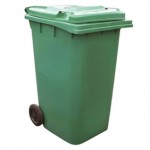The Liberal Democrat Group has outlined ambitions plans to make York the greenest city in the north of England.
The Group will ask City of York Council to back the vision at a ‘Full Council’ meeting on the 18th July. If passed, the plans would see a commitment to achieve the highest recycling rates in the region, an ambitious carbon reduction programme implemented, and work undertaken to explore setting-up a doorstep food recycling service and a council-owned renewable energy company.
The Liberal Democrat Group will move the following motion at a meeting of City of York Council’s ‘Full Council’ on Thursday 18th July at 6:30pm at the Guildhall:
Make York the Greenest City in the North of England Council motion
Council Notes the failure of the Labour Cabinet to build-on the achievements of the previous Liberal Democrat administration and bring forward a distinct vision for a greener council and greener York.
This approach has seen a fall in recycling rates, the closure of Beckfield Lane, the reduction in opening hours at Towthorpe, the introduction of unpopular green bin charges, the failure to bring forward a replacement to the successful ‘Carbon Reduction Programme’, the ending of the Green Jobs Task Group, and the failure to innovate and lead the development of new approaches to tackling climate change and improving the environmental credentials of York.
Council Resolves to:
• Confirm its vision to make York the greenest city in the North of England with the highest unitary council recycling rates in the area, a long-term commitment to a food waste recycling scheme, and as a regional centre for Green Jobs.
• Ask Cabinet to immediately bring forward the details of the next stage of the ‘Carbon Reduction Programme’ with renewed commitments to reduce emissions.
• Agree to set-up a cross-party ‘Green Policy Working Group’ (which will incorporate a re-established the Green Jobs Task Group) and will seek to turn this vision into a detailed strategy. This Group should consider issues such as developing a renewable energy company, a sustainable food strategy, a waste minimisation programme and work on fuel poverty and energy efficiency. The Group should be supported in this work by the recently expanded 18-officer strong ‘Policy, Performance and Innovation’ Team.
Cllr Keith Aspden, Liberal Democrat Group Leader on City of York Council, commented:
“Under the previous Lib Dem administration recycling increased from 12% to 43%, a 25% council carbon reduction plan was successfully implemented, and work on creating green jobs was prioritised. Unfortunately, under the current Labour administration this progress has not been built on and we are seeing recycling centres close, recycling rates fall, and a lack of any clear strategy or ambition. We need to reverse this decline and get York back to where it was – leading the environmental agenda.
“This motion attempts to outline a vision for a greener council and greener York; a city which has the highest recycling rates in the North, is a centre for green jobs, and is looking to innovate with renewable energy options and a sustainable food strategy. By looking at best practice from the UK and abroad we can make York a true eco-city.
“None of these things will happen overnight, but I am asking the Council to back the vision and work on a cross-party basis to make it a reality in the coming years. This will not only help the environment but also has the potential to save taxpayers’ money through a fall in landfill tax, improved energy efficiency, and potentially could being in revenue for the Council through energy generation projects.”
Further Information:
Recycling Rates:
In 2011/12 City of York Council’s ‘Recycling, Reuse and Composting’ rate was 46.4%. Other northern authority councils outperformed this including Cheshire East (52.9%), East Riding of Yorkshire (51.3%), Chester West and Chester (49.6%) and Kingston-Upon-Hull 49.3%. In 2012/13 City of York Council’s rate has fallen to 45.9% (the target was 47.6%). This year landfill tax is due to cost City of York Council £3.3million – up 11% since last year.
Carbon Reduction:
In 2007 the Liberal Democrat Executive put in place plans to reduce City of York Council’s carbon dioxide emissions by 25% by 2013. The Council’s emissions have actually reduced by 28% over the past five years. The success has been achieved by schemes such as installing new biomass heating systems in schools and libraries and reducing council buildings from 17 to 2. A new programme would identify further emission savings so that the Council can fulfil commitments to a 40% reduction in CO2 by 2020, agreed under the Friends of the Earth’s ‘Get Serious About CO2’ campaign. The Lib Dem Budget amendment In February put aside £50,000 for this project. This plan would further protect taxpayers from steep increases in energy costs, and help to generate employment in renewable energy and energy conservation.
Food Waste Recycling:
A recent City of York Council study said introducing a doorstep food waste recycling scheme has the potential to increase recycling to over 50% – as 19% of current waste in York is food. When the Council looked at a combined garden waste and food collection service last year, it concluded that the potential savings in landfill tax would offset additional collection costs.
Renewable Energy Schemes:
Examples: Combined Heat and Power: Birmingham City Council is part of an award winning Combined Heat and Power scheme which provides highly efficient energy by utilising heat, normally a by-product of energy generation. The cities scheme is the fastest growing in the UK, with the Council House, ICC, Aston University and Birmingham Children’s Hospital among the buildings benefitting from more efficient energy. Councils such as Woking have also set-up schemes. The planned cross-party group would explore these and similar initiatives.

